By Jonathon Van Maren
As the Hermit Kingdom dominates the news cycle once again, all eyes are on North Korea. Kim Jong Un, desperate to cling to power, has fired multiple rockets and threatens the United States with nuclear war, while President Donald Trump announced to the United Nations that America may be forced to “totally destroy” North Korea if the threats escalate. There is little doubt that if North Korea were to attempt an attack on the United States, the US military could do just that. Considering that it has long been one of the unholy trinity of George W. Bush’s “Axis of Evil,” it is safe to assume that the plans for an attack like this already exist.
Because we know so little about North Korea, it is easy to forget about the lives of the people that live within the prison state, sealed off from the outside world by their leaders. There are many Christians there, for example—Open Doors USA estimates that there are 300,000 of them in a nation of over 25 million people (other estimates run much higher). North Korean Christians are viciously persecuted—only atheism and “Juche,” a fusion of Marxism and Korean nationalism created by Kim Il-sung, are accepted, and people can be executed for simply possessing a Bible. Nearly 70,000 Christians suffer in North Korean concentration camps—the Database Center for North Korean Human Rights estimates that 75% of Christians sent to these camps do not survive. Defectors who have escaped the regime have related horror stories of Christians roasted on crosses over fires, crushed to death by steamrollers, or being used to test biological weapons.
Kim Jong Un sees the Christian faith as an existential threat to his regime, even though freedom of religion is technically protected by the country’s farcical constitution. Hyeonseo Lee, a North Korean defector and author of the memoir The Girl with Seven Names, told me in an interview that Christian symbols were even cut out of the movies that the regime imported from India and China. The only crosses she ever saw were the Red Cross symbols, and so when she escaped into South Korea and began to see many churches, she initially thought it strange that there were so many hospitals.
“We have two fake churches in Pyongyang,” she told me, “that is made by the regime for propaganda to show outside visitors that we have some Christians. But all the members are agents. But some people from the outside are confused and think they’re real churches.” There are actually five state-controlled churches in the capital—a Catholic cathedral, the Jangchung, three Protestant churches, the Bongsu, Chilgol, and Jeil, and the Orthodox Holy Trinity Russian Church, built to appease Russian demands. These churches are merely showpieces. Real Christians are murdered or sent to the camps.
Many Christians become the victim of public executions. Lee remembers that attendance at such events was routine. “Everything in North Korea seemed normal,” she said, “until I found out later it was totally crazy. Like public executions—of whole families after they said the wrong thing. Like my friend’s family after the father said the system was unfair, the whole family disappeared in the middle of the night.” Attending these executions was mandatory, even for children—the regime wanted to ensure that the people understood the cost of resistance. Work closes down, factories close down, schools close down—everyone has to watch.
“I attended my first public execution when I was seven,” Lee told me. “I was shocked to see a man hanging by his neck from a railroad bridge.” They also used rifle-wielding firing squads, but since then the regime has tried to create a more gruesome spectacle in order to amplify the climate of fear. “It’s even more insane now,” Lee said. “They use machine guns…[seeing] a human head spraying blood and exploding…it’s just insane. Some people fainted immediately on site.”
To ferret out Christians, North Korean officials devise insidious schemes to turn children into informers. One child was told by her teacher that an award would be given for coming to school with a book. The little girl brought a Bible to school, and upon returning home, discovered that her family had vanished. Each Saturday, Lee told me, people across the nation had to attend what she referred to as “criticism discussions”—under the watchful eyes of the regime’s agents, people had to criticize one another against their will. North Koreans, says Lee, never learn kindness or how to give a compliment—even many spouses do not trust each other, because what if they got divorced and one decided to recount intimate conversations to the authorities?
“Until I saw the outside world, I thought my country was paradise,” Lee remembers incredulously. The regime carefully cultivates a version of the outside world that is intended to create a populace happy with their lot—many North Koreans believe that Americans can’t even afford clothes or food. Although Lee saw people collapsing and dying during the widespread famines of the 1990s, she remembers being shown photographs of shoeless people in the West. “Whenever we saw that, I felt lucky that we had the Dear Leader,” she told me. “Because at least I had shoes and at least I wasn’t suffering under the American colonizers.”
Meanwhile, Christians are suffering untold agonies in North Korean concentration camps. Canadian pastor Hyeon Soo Lim, who was recently released by North Korea after spending two years locked away after being falsely accused of attempting to overthrow Kim Jong Un’s regime (he was actually there for humanitarian purposes), described what his days would look like. “During the winter, I had to dig holes that measured one meter wide and one meter deep,” he said. “The ground was frozen. The mud was so hard that it took two days to dig one hole. It was incredibly challenging. My upper body was sweating. My fingers and toes were frostbitten.”
There are some organizations that assist North Korean Christians in fleeing the Hermit Kingdom, and we should remember them in our prayers as we follow the unfolding situation here in the West. It is easy to forget that while the world seems to be held hostage by a fanatic who runs his nation like a concentration camp and desperately clings to power, millions of people and hundreds of thousands of Christians will potentially bear the consequences of their sadistic leader’s lust for power. Pyongyang was once home to so many Christians that it was known as “the Jerusalem of the East.” Perhaps one day, it can be again.
__________________________________________________
For anyone interested, my book on The Culture War, which analyzes the journey our culture has taken from the way it was to the way it is and examines the Sexual Revolution, hook-up culture, the rise of the porn plague, abortion, commodity culture, euthanasia, and the gay rights movement, is available for sale here.


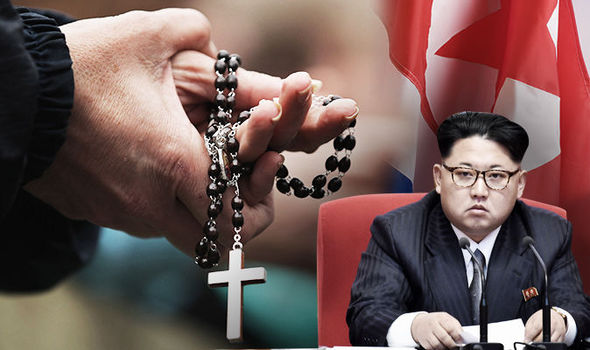
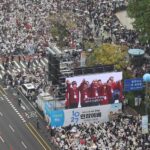
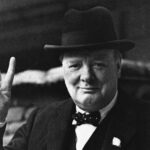

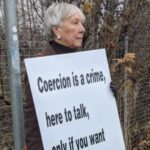
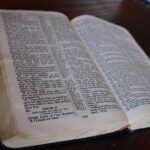
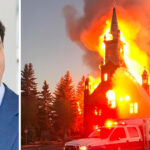
Doing your part to further demonize North Korea… thus justifying probable atrocities by those who direct or indirect are the cause that such regimes exist …
P.S. I mostly agree with your insights, but I don’t recognize you in this editorial.
I’m not sure how I’m demonizing North Korea? I’m simply relating facts about what life is like for Christians who live there.
By assuming, therefore endorsing that every thing you hear about N Korea is the truth, by failing to understand the political stances, and maneuvers to arrive at determined outcomes. This is politics as usual, and the always is the people the lowest of the lowest, Jesus like, who pay the consequences of our sins.
I genuinely don’t understand your criticism. First of all, I don’t assume everything I hear about North Korea is true. The facts I cite in this column are from sources I trust, including a firsthand interview with a North Korean defector. Second of all, I’m merely highlighting the presence of a persecuted Christian minority in North Korea, which would, if anything, be a deterrent to “utterly destroying” that country. And third, I don’t actually state a political position or a preferred outcome to the current situation, besides the hope that North Korean’s Christian communities will one day be able to thrive. So I’m not sure what you think I am trying to say, or even what your position is, but I think you may be reading far more into my column than what I intended.
Found the NK agent!